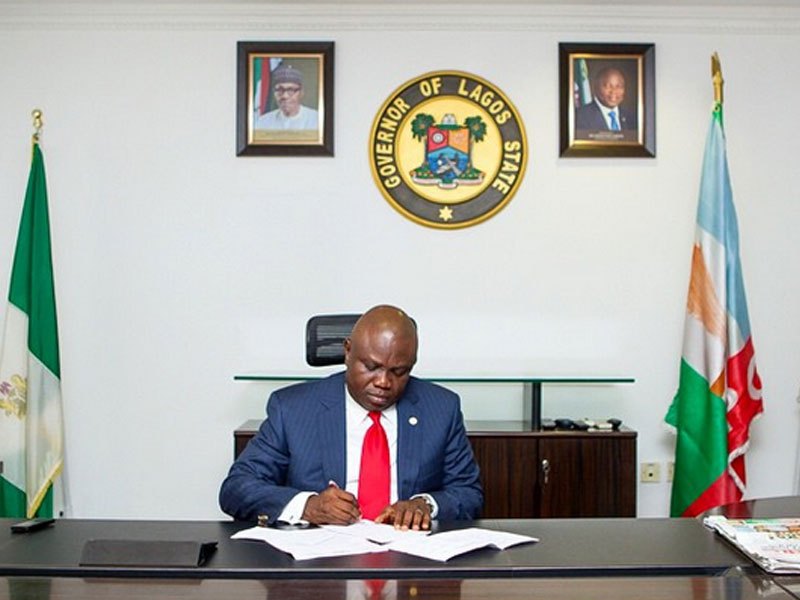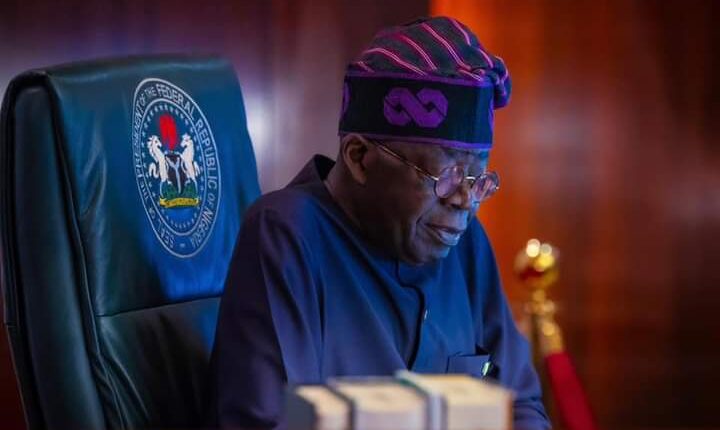Outgoing Lagos State governor, Akinwunmi Ambode, says his four-year administration took no foreign loans despite the pressure on the state’s Internally Generated Revenue (IGR) due to massive infrastructure projects the administration set out to accomplish to cater to the growing needs of the estimated over 21 million residents of the state.
According to Ambode, although the foreign component of the state’s debts hovers around $1.43 billion, his administration never added to it but was committed to servicing what it inherited from the previous administrations, which has been compounded by unstable exchange rates.
The governor spoke in an exclusive interview with BusinessDay, saying his background as a financial expert and years of experience at the top level of the state’s civil service as an accountant-general came handy in managing the resources of Nigeria’s biggest state economy to achieve outstanding results.
Statistics from the Debt Management Office (DMO) show Lagos State’s total external debt stock as at 31 December, 2018 stood at $1.43 billion. The external debt comprised $1.28 billion from multilateral source and $143.83 million was bilateral, sourced from the African Development Bank.
In addition, the state’s total domestic debt stock was N530.24 billion as at the same period of 2018.
“Talking about Lagos State having the highest amount in terms of foreign loans, truth is that I have it on record that in my four years, I never took any foreign loan. So, whatever it is that they are saying about having $1.43 billion is an accumulation of loans that have been taken by successive governments,” Ambode told BusinessDay.
“Remember also, these facilities that we call loans were taken at an exchange rate that was lower than N150. But again, this government that has not taken any of these facilities would pay back and has been paying back in the last four years on the new exchange rate which is like N360 because government is a continuum.
“That has immense pressure on the internally generated revenue. And when you have this pressure on the IGR that you are using to service these facilities without complaining, it means that you have been financially prudent to be able to use the remaining resources to do what you have outside there in terms of infrastructure development,” said Ambode.
He further explained that beyond being financially prudent, his administration has given value for money by undertaking major projects that are further improving the economy of Lagos in particular and Nigeria in general, pointing to the construction of road networks, Oshodi Transport Interchange (OTI), Lagos airport road, resuscitation of Ayinke House (maternity hospital), Ikeja, jubilee bridges, laybys, redesigning of Ojodu Berger on Lagos-Ibadan Expressway, the light-up Lagos project, among others, as legacies his successor, Babajide Sanwo-Olu, will build upon.
“That is the way to explain what has been happening and the value that comes with the infrastructure that we are giving. It is like double the price of what we are putting inside when you match the issues about loans and resources. Remember also that the country was going into recession when we came in,” Ambode explained.
Speaking on his drive in governance, Ambode said aside from passion to improve the lot of the people, his administration leveraged on the Lagos Development Plan 2012-2023 and took specific steps to improve the IGR to enable it deliver on the development plan.
“One of the strategic instruments in that development plan is to create a financial model for Lagos State. It is not enough for us to say we are having strategic pillars of development without knowing how to fund it and so in the development plan, a growth plan for revenue generation had actually been embedded in it,” Ambode said.
“Fortunately for Lagos, you have statistics that favour revenue growth. Lagos is the commercial capital of Nigeria; the business community in terms of population or location is here and this is like 70 percent of what is happening in Nigeria; we have the market and again Lagos is the most sophisticated. Those indicators were just enough for anybody to carry on from where the previous administration stopped and then be able to continue.
“Remember also when we came in, the revenue that was generated on a monthly basis was about N12 billion and then it moved to almost like N20 billion. Today, we are having an average of N30 billion to N35 billion a month but it is not as if the expansion is based on increase in rates or taxes. What has been done is just improvement in collection machinery and then expanding the tax net and the ability to put people together and run an efficient civil service system that was able to tap into those things; and then more importantly, investing in technology to be able to carry out some of these collections.
“Yes, revenue has improved tremendously but obviously it is based on focus, and it is based on the ability to match those needs in terms of development and economic growth with how to fund it. Lagos is also favoured by the fact that because of the dynamics that we have, we are likely to be more attractive to the capital market and also more attractive to commercial banks and the ability to pay back would always give you more resources to be able to get funding for most of these projects that we have done,” the governor said.
Written by Businessday Newspaper Senior Analyst: Joshua Bassey on 15th April, 2019.




 Business6 months ago
Business6 months ago
 celebrity radar - gossips4 months ago
celebrity radar - gossips4 months ago
 celebrity radar - gossips4 months ago
celebrity radar - gossips4 months ago
 Business3 months ago
Business3 months ago








You must be logged in to post a comment Login